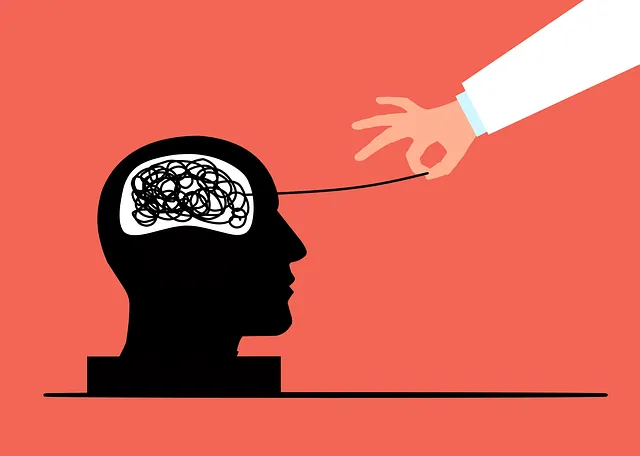Cultural sensitivity is a critical component of high-quality mental healthcare, especially in diverse communities like those served by Kaiser Permanente behavioral health services in Lakewood. By prioritizing cultural awareness, providers can enhance patient outcomes and build trust through understanding unique cultural backgrounds, beliefs, and communication styles. The Kaiser Permanente Model focuses on inclusive environments and tailored care, integrating empathy-building strategies for stronger patient-provider relationships. This holistic approach includes culturally relevant education programs, addressing language barriers, and crisis intervention guidance tailored to diverse populations. Continuous training and burnout prevention strategies contribute to a supportive atmosphere, reducing stress and improving well-being. Measuring success involves evaluating improved access to care, reduced burnout rates, and enhanced self-esteem among patients, demonstrating the positive impact of cultural sensitivity on overall mental healthcare outcomes.
“In an increasingly diverse society, cultural sensitivity in mental healthcare is no longer a choice but a necessity. This comprehensive guide explores how organizations like Kaiser Permanente’s behavioral health services in Lakewood set the standard for culturally competent care. We delve into the challenges of cross-cultural communication, offering strategies to enhance practice. From understanding cultural nuances to measuring success, this article provides insights for mental health professionals aiming to improve patient outcomes and foster inclusive environments.”
- Understanding Cultural Sensitivity: A Cornerstone of Mental Healthcare
- The Kaiser Permanente Model: Behavioral Health Services in Lakewood
- Challenges in Cross-Cultural Communication for Mental Health Professionals
- Strategies to Enhance Cultural Competence within Behavioral Health Care
- Measuring Success: Evaluating the Impact of Cultural Sensitivity in Mental Healthcare Practices
Understanding Cultural Sensitivity: A Cornerstone of Mental Healthcare

Cultural sensitivity is a cornerstone of effective mental healthcare practice, especially within diverse communities like those served by Kaiser Permanente behavioral health services in Lakewood. Understanding and respecting cultural differences can significantly enhance patient outcomes and foster trust between providers and clients. Each individual brings their unique cultural background, beliefs, and experiences to therapy, which can shape their perception of mental illness and recovery.
By incorporating cultural sensitivity into their approach, mental healthcare professionals can provide more personalized and inclusive care. This involves learning about different cultural practices, values, and communication styles, as well as being mindful of potential language barriers. For instance, integrating culturally relevant therapeutic techniques or encouraging mental wellness journaling exercises tailored to specific cultural backgrounds can make treatment plans more engaging and effective. Moreover, designing mental health education programs that consider cultural contexts can empower individuals to take charge of their mental wellness, preventing burnout and promoting long-term well-being.
The Kaiser Permanente Model: Behavioral Health Services in Lakewood

The Kaiser Permanente Model offers a compelling example of culturally sensitive mental healthcare, particularly through its behavioral health services in Lakewood. This approach emphasizes creating an inclusive environment that respects and values diverse cultural backgrounds, ensuring every patient receives care tailored to their unique needs. By integrating Empathy Building Strategies, the model fosters strong patient-provider relationships, which is crucial for effective treatment.
The facility’s reviews highlight successful applications of Confidence Boosting techniques, where patients from various ethnic and social backgrounds express improved mental well-being. Moreover, Kaiser Permanente actively engages in Mental Health Policy Analysis and Advocacy, ensuring their practices align with community needs and promoting equitable access to care. This holistic approach not only improves individual outcomes but also contributes to a more comprehensive mental healthcare system that addresses the specific cultural considerations of its diverse patient population.
Challenges in Cross-Cultural Communication for Mental Health Professionals

Cultural sensitivity is a cornerstone of effective mental healthcare, yet navigating cross-cultural communication presents unique challenges for professionals. When serving diverse communities, such as those reviewed by Kaiser Permanente behavioral health services in Lakewood, understanding cultural nuances is paramount. Misunderstandings can arise due to differing communication styles, language barriers, and varied conceptualizations of mental health and wellness. For instance, what’s considered a healthy expression of emotion in one culture might be viewed as disruptive in another.
Mental health professionals must embrace the Mind Over Matter principles and engage in ongoing learning about various cultural perspectives to overcome these challenges. This includes developing cultural competency skills, staying informed about Mental Wellness Coaching Programs Development, and fostering an environment where clients feel comfortable discussing their unique backgrounds and experiences. By doing so, they can provide more personalized care that respects and validates individual cultural identities, thereby enhancing the overall Mental Health Awareness and therapeutic outcomes.
Strategies to Enhance Cultural Competence within Behavioral Health Care

Enhancing cultural competence within behavioral health care is a multifaceted approach that requires ongoing training and education for healthcare providers. At Kaiser Permanente behavioral health services reviews Lakewood, for instance, professionals are encouraged to integrate cultural sensitivity into every aspect of patient care. This involves actively listening to and understanding patients’ backgrounds, values, and beliefs, which can significantly improve treatment outcomes. By providing Crisis Intervention Guidance tailored to diverse populations, healthcare providers can better address unique challenges and promote effective recovery.
Additionally, incorporating Burnout Prevention Strategies for Healthcare Providers is vital. Implementing Stress Reduction Methods, such as mindfulness practices and self-care techniques, can mitigate the high-stress environment often experienced in behavioral health care. These strategies not only support provider well-being but also create a more supportive and inclusive setting for patients from various cultural backgrounds.
Measuring Success: Evaluating the Impact of Cultural Sensitivity in Mental Healthcare Practices

Measuring success in mental healthcare goes beyond simple numbers and statistics. It’s about recognizing the profound impact that cultural sensitivity has on patient outcomes. Just as Kaiser Permanente behavioral health services reviews in Lakewood highlight, integrating cultural competency can lead to improved access to care for diverse communities. This means not just treating symptoms but understanding and addressing the unique stressors and challenges faced by individuals from different backgrounds.
For instance, evaluating the success of cultural sensitivity initiatives might include looking at reduced rates of burnout among healthcare providers, as addressed in popular discussions on burnout prevention strategies for healthcare providers. It could also involve tracking improvements in self-esteem improvement for patients, reflecting a more inclusive and supportive environment that fosters healing and recovery. Ultimately, successful cultural sensitivity in mental healthcare is about enhancing overall well-being and ensuring that services meet the specific needs of every individual, regardless of their cultural heritage.
Cultural sensitivity is not just a best practice; it’s an essential component for providing effective and equitable mental healthcare. As demonstrated by the Kaiser Permanente behavioral health services reviews in Lakewood, integrating cultural competence can significantly improve patient outcomes and access to care. By overcoming cross-cultural communication challenges through strategic initiatives, mental health professionals can create inclusive environments that honor diverse beliefs and backgrounds. Ultimately, measuring success through evaluation ensures continuous improvement, making cultural sensitivity a cornerstone for modern mental healthcare practices.






